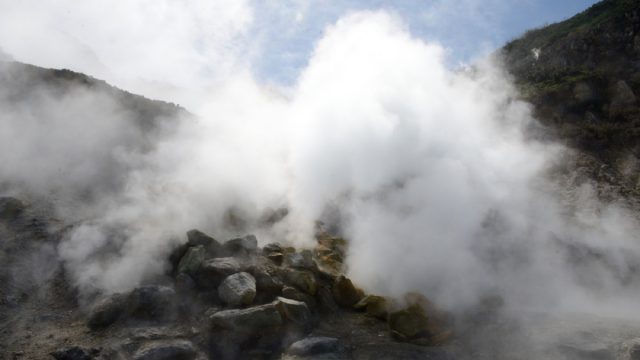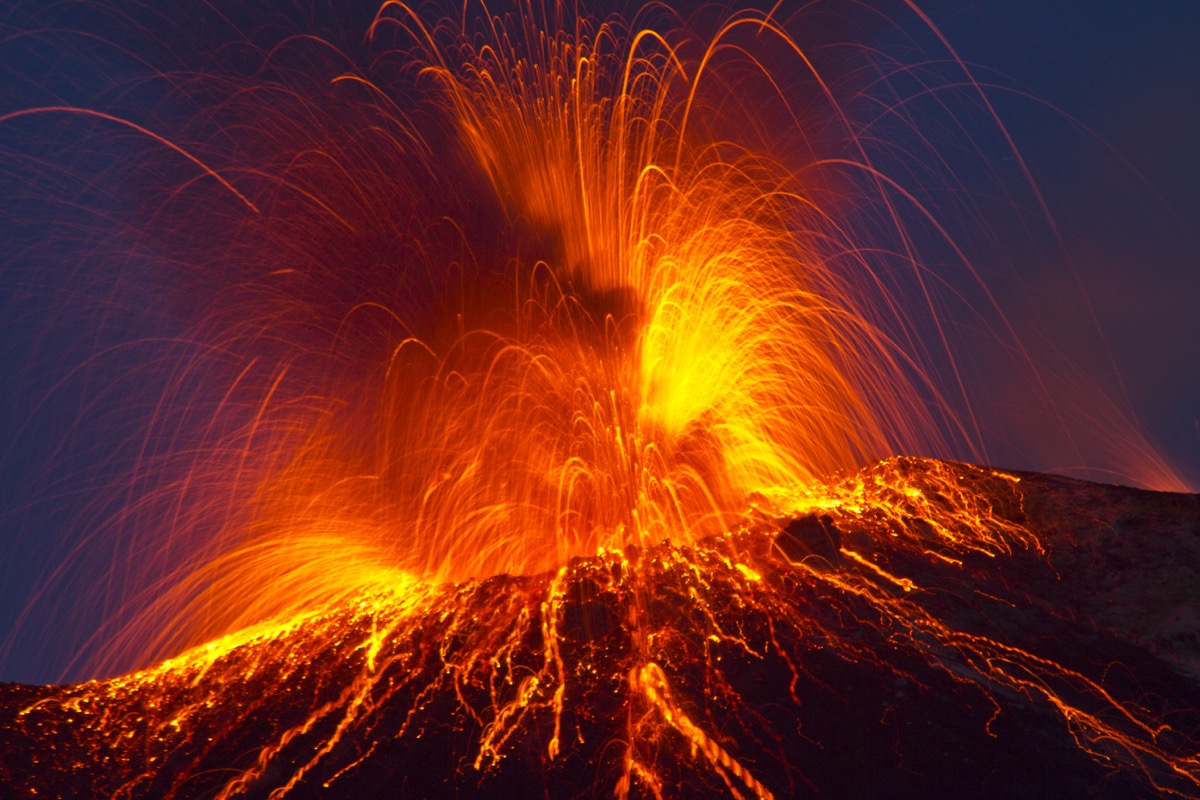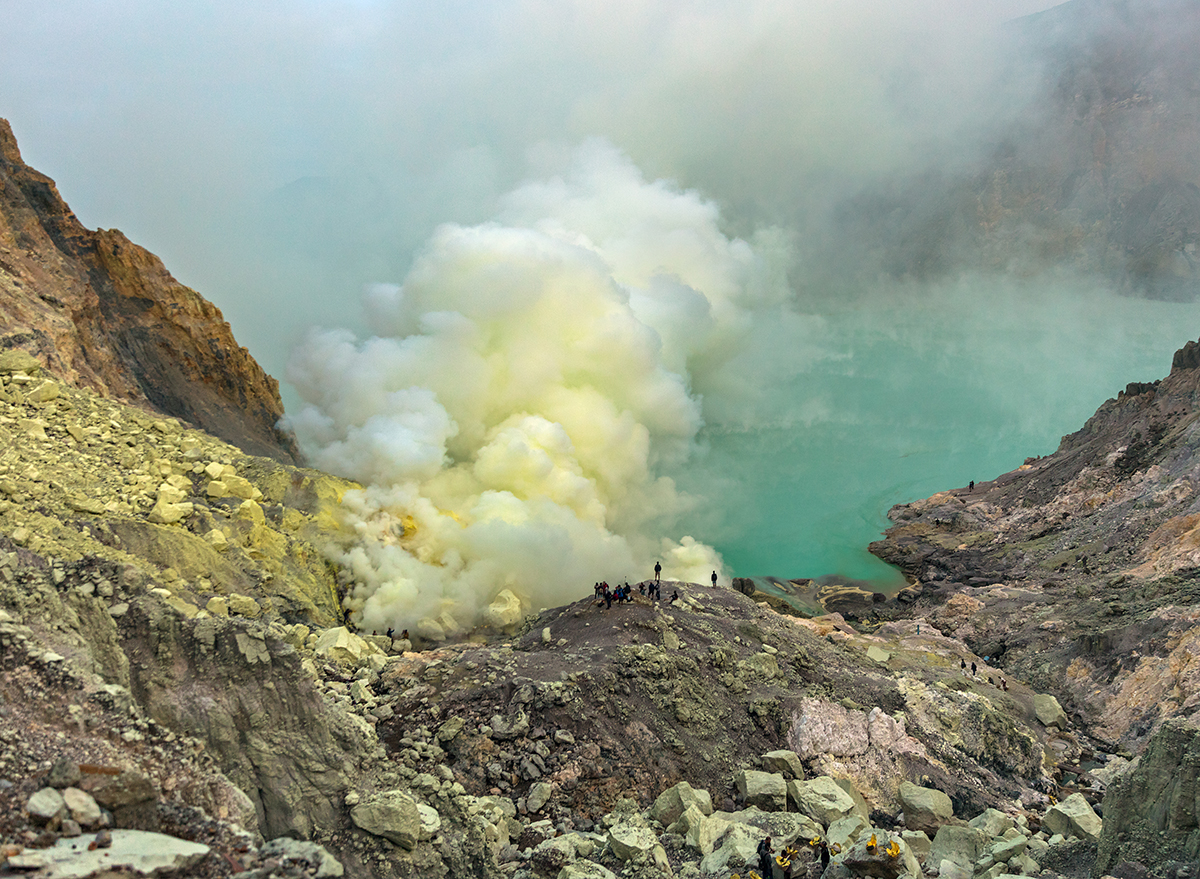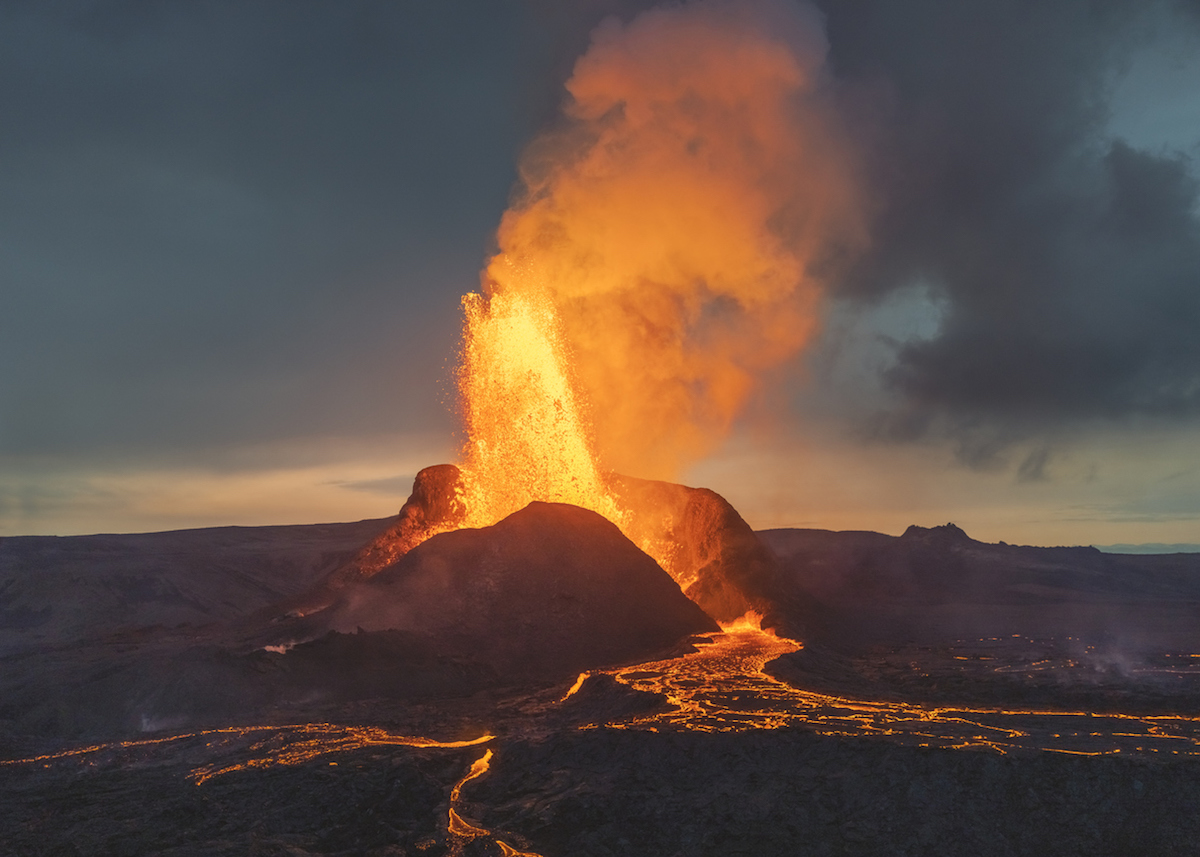Italian Supervolcano Is Sparking Concern and Evacuation Plans

When it comes to volcanic eruptions, it’s always better to be safe than sorry. In addition to hot lava and suffocating ash, an explosion—even a “small” one—can cause all manner of destruction, from floods and mudslides to power outages, drinking water contamination, and wildfires, according to the Centers for Disease Control and Prevention (CDC).
In the long-term, eruptions can cause fewer periods of rain, the destruction of crops and vegetation, and even a stalled economy, per the Archives of Industrial Hygiene and Toxicology. So, when volcanoes act suspiciously, scientists listen. Currently, there are a few that experts are watching due to their increased seismic activity and the level of destruction they’d cause if they were to erupt. Read on to find out if a once-in-a-lifetime explosion is imminent.
RELATED: One of America’s “Very High Threat” Volcanoes Keeps Quaking—Could It Erupt Any Day Now?
There’s worrisome seismic activity at the Campi Flegrei caldera in Italy.

One of the most common indicators of an upcoming eruption is an increase in the frequency and intensity of seismic activity, as well as swelling of the ground surface, according to the U.S. Geological Survey (USGS).
The Campi Flegrei, an eight-mile-wide caldera in Naples, Italy, is experiencing both right now. The Guardian writes that the area saw more than 1,100 earthquakes in September, including 4.0 and 4.3 magnitude quakes at the end of the month, which were the strongest in the area in four decades. The ground has also lifted 1.15 meters since 2005, according to Nature.
The Campi Flegrei most recently erupted in 1538, and the events leading up to it were similar to the ones the area is seeing now. According to an account summarized by the USGS, a “swarm of earthquakes that had bothered the inhabitants of Pozzuoli and Naples all summer long ended abruptly on September 29. The end of this swarm was heralded by a very large earthquake followed immediately by loud thunder, sounding like bombardment from heavy guns. This was the beginning of a week-long eruption.”
One of the most significant eruptions at Campi Flegrei occurred 39,000 years ago and may have led to the extinction of Neanderthal man, per The Guardian.
RELATED: The 10 Riskiest U.S. Cities for Natural Disasters, New Research Shows.
Scientists have two theories for the activity.

That information sounds troubling. “The first thing people think is that there’s going to be a civilization-ending eruption,” Michael Poland, a geophysicist at the U.S. Geological Survey and the scientist-in-charge of the Yellowstone Volcano Observatory, told NBC News.
But that’s probably not the case. Instead, the activity is likely due to a phenomenon called bradyseism, when the earth rises or falls due to the filling or emptying of underground magma chambers, explains The Guardian. Most volcanologists agree there is not an imminent threat of eruption. However, the rapidly rising ground could impact local buildings and lead to dangerous situations.
Similar activity is occurring stateside, too. The Long Valley Caldera, a volcano in California about 250 miles north of Los Angeles, has seen increased seismic activity for the past four decades, which prompted scientists to look at it more closely. In a recent study published in the journal Science Advances, scientists from the California Institute of Technology say the quakes are likely due to the caldera cooling down.
“We don’t think the region is gearing up for another supervolcanic eruption, but the cooling process may release enough gas and liquid to cause earthquakes and small eruptions,” Zhongwen Zhan, a geologist who worked on the study, said in a statement.
RELATED: Scientists Reveal the Heartbreaking Reason Dead Gray Whales Keep Washing Up on Shore.
Despite the low risk, Italy is preparing for a potential evacuation.

The Italian government is devising plans to ensure it would be able to evacuate the more than 500,000 people who live in the towns and villages near the caldera. They also plan to check the strength of buildings in the area after they’ve seen months of repeated earthquakes, according to Reuters.
It’s a tough call to make.

In October, Italy Civil Protection Minister Nello Musumeci said evacuations would only be triggered in case of “extreme necessity,” reports Reuters.
The area has been evacuated before, although no eruption took place. In 1983, there was a large-scale evacuation of Pozzuoli after a series of earthquakes and three meters of uplift in the ground, writes The Guardian. Around 40,000 people were ordered to leave the area.
Camp Flegrei is part of a supervolcano, which means it can create a magnitude 8 eruption. In a magnitude 8, the measured deposits travel farther than 240 cubic miles, per the USGS.
With that in mind, again, it may be better to be safe than sorry.
RELATED: For more up-to-date information, sign up for our daily newsletter.
- Source: https://www.cdc.gov/disasters/volcanoes/facts.html
- Source: https://www.usgs.gov/faqs/how-can-we-tell-when-a-volcano-will-erupt
- Source: https://www.nature.com/articles/d43978-023-00163-z
- Source: https://www.usgs.gov/publications/historical-activity-campi-flegrei-caldera-southern-italy
- Source: https://www.science.org/doi/10.1126/sciadv.adi9878
- Source: https://www.usgs.gov/volcanoes/yellowstone/questions-about-supervolcanoes